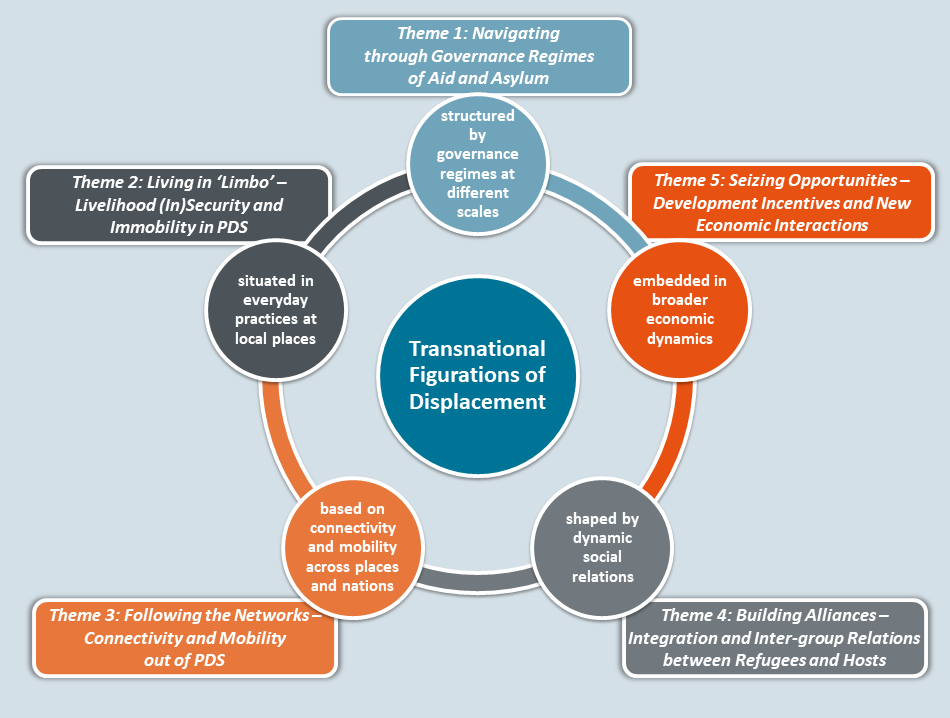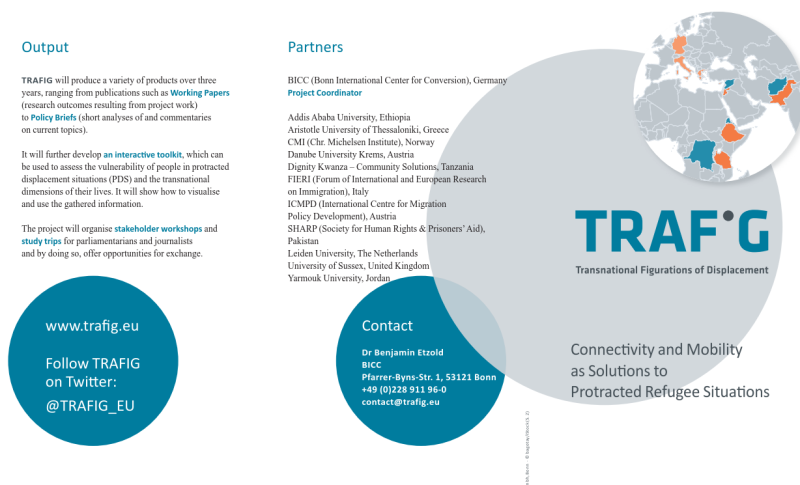Activities
We undertake comparative research in Africa, Asia and Europe
TRAFIG carries out trans-disciplinary, applied research to advise policymakers and to contribute to public debates. We apply both qualitative and quantitative research methods in camps and cities in Africa (Ethiopia, DR Congo, Tanzania), the Middle East (Jordan, Pakistan) and Europe (Greece, Italy, Germany).
We apply an innovative concept
TRAFIG introduces a novel research perspective—the figurational approach. On this basis, we investigate displaced people’s lives and dependencies, local relations between refugees and hosts and transnational network connections. We consider connectivity and mobility as resources that enhance the resilience of displaced people.
We support policymakers and practitioners to help the most vulnerable groups
TRAFIG reviews policies and legal instruments in recipient countries and on the European and global level. We develop a ‘Toolkit for Practitioners’ with which the needs of displaced people can be assessed and the risk of protractedness be measured. We provide knowledge that helps to design solutions that are tailored to displaced people’s own capacities.
We seek to give a voice to and empower those affected by displacement
TRAFIG aims to empower displaced people through a participatory research approach, by allowing them to tell their story in interviews and videos, and by bringing their voices to the attention of policymakers, the media and the public.


